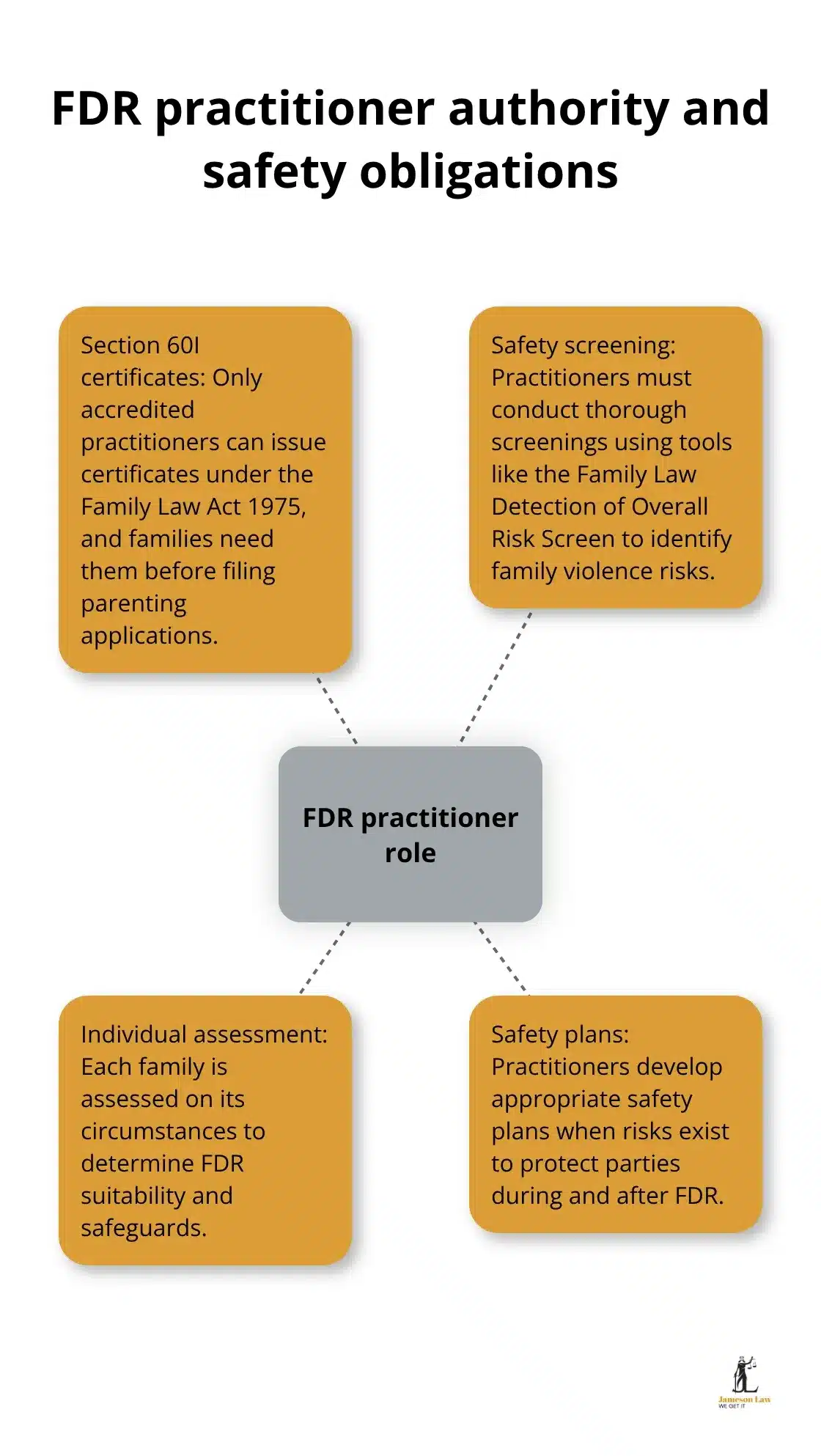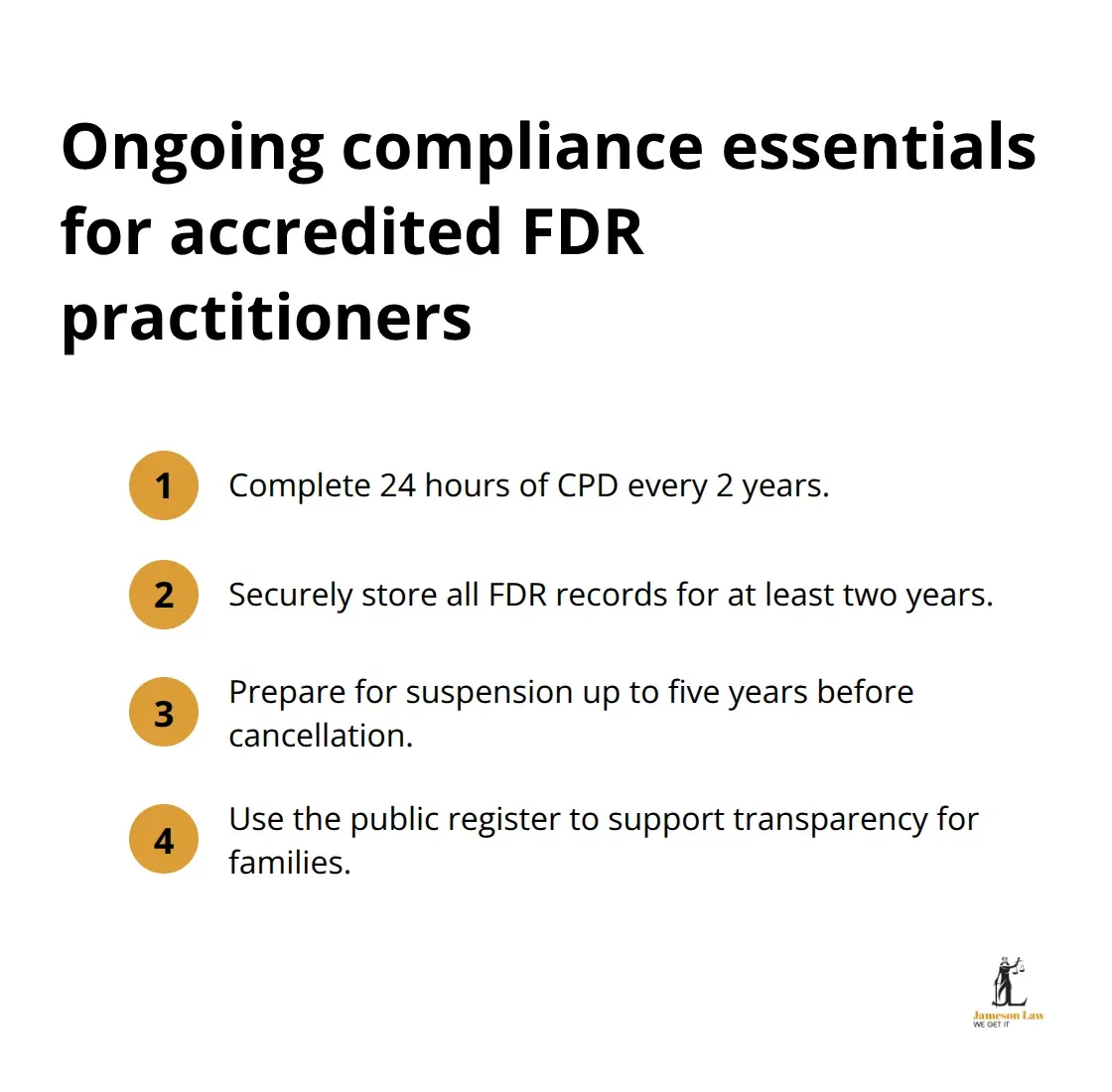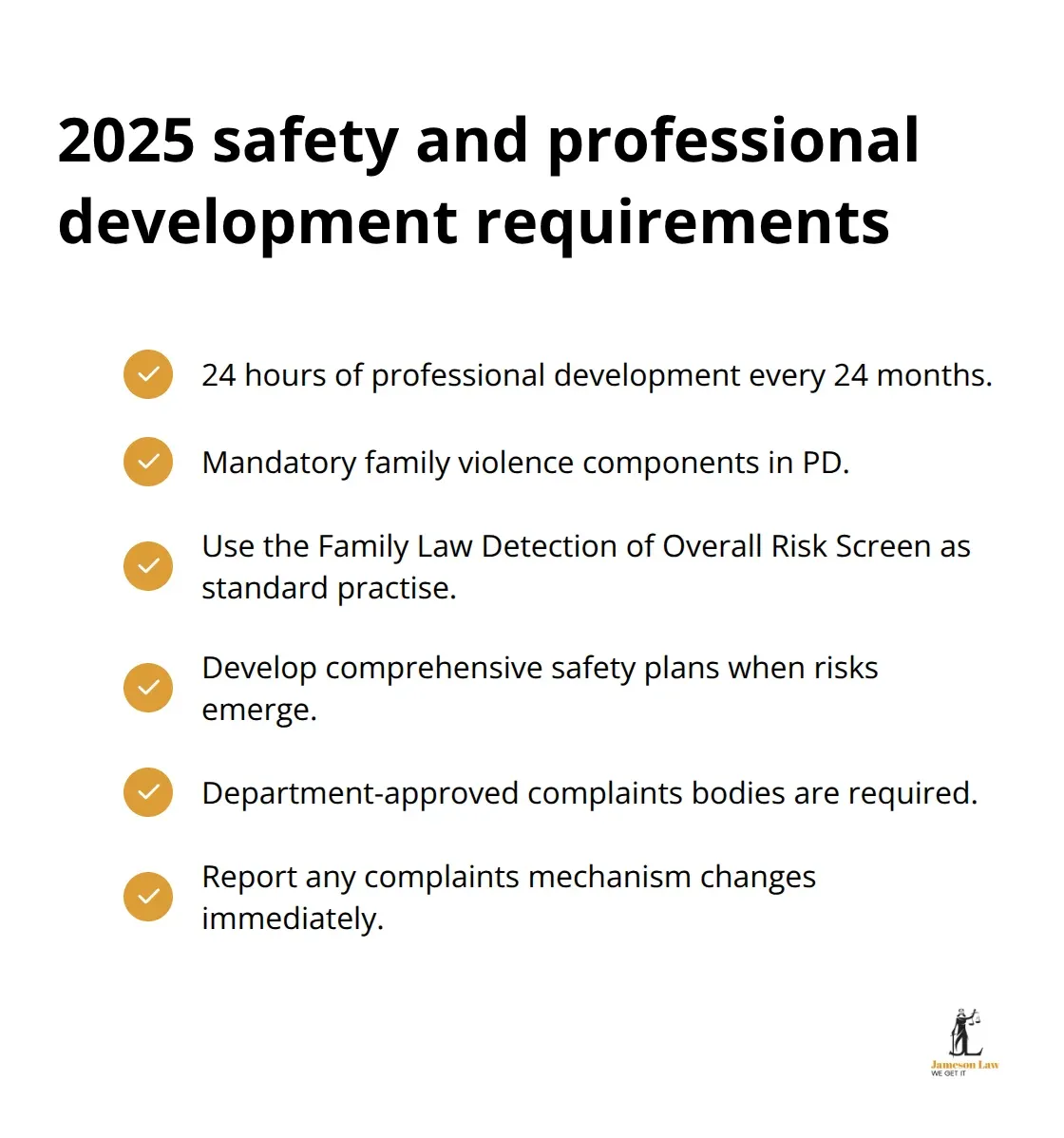Family dispute resolution has become a cornerstone of Australia’s legal system, with strict regulations governing practitioners who guide families through conflict.
The Family Law Family Dispute Resolution Practitioners Regulations 2008 establish comprehensive standards for accreditation, conduct, and ongoing professional development. We at Jameson Law understand these regulatory requirements shape how families access mediation services before pursuing court proceedings.
What Do Family Dispute Resolution Practitioners Actually Do?
Family Dispute Resolution practitioners serve as specialised mediators who help families resolve disputes outside court proceedings. These accredited professionals must complete a Graduate Diploma of Family Dispute Resolution and maintain professional indemnity insurance to practise legally. The Attorney-General’s Department maintains a public FDR practitioner register, with practitioners required to complete 24 hours of professional development every 24 months. See eligibility and steps to qualify on the AGD page: Become an FDR practitioner.
Core Responsibilities and Authority
Under the Family Law Act 1975, FDR practitioners hold exclusive authority to issue Section 60I certificates. Families need these certificates before they file parenting applications in court. Professional standards mandate that practitioners conduct thorough safety screenings to identify family violence risks (using tools like the Family Law DOORS). Practitioners must assess each family’s situation individually and develop appropriate safety plans when risks exist.

Mandatory FDR Requirements Before Court Action
Australian law requires families to attempt family dispute resolution before they pursue parenting orders through court proceedings. This mandatory requirement applies to all parenting disputes unless specific exemptions exist. The Federal Circuit and Family Court of Australia guidance on compulsory FDR explains when a Section 60I certificate is needed and how exemptions work.
When Courts Waive FDR Requirements
Courts grant exemptions from mandatory FDR in specific circumstances that make mediation inappropriate or dangerous. Family violence situations can qualify for exemptions, as do cases that involve child abuse or where urgent court orders are needed to protect children’s welfare. Recent updates also emphasise enhanced family violence training for accredited practitioners. For court steps and risk screening, see the Court’s pre-action procedure and the Lighthouse risk screening information.
How Do FDR Practitioners Meet Professional Standards?
The Family Law Family Dispute Resolution Practitioners Regulations 2025 restructure accreditation and compliance. Practitioners must complete an approved Graduate Diploma, meet suitability checks, maintain insurance and keep CPD up to date. Details are on the AGD’s overview of the 2025 regulations and the page covering obligations once accredited.
Mandatory Insurance and Registration Requirements
Professional indemnity insurance is mandatory when practitioners apply. The Department assigns unique registration details and keeps the public register current. Practitioners must have an approved complaints mechanism before they commence practise.
Professional Development and Record Management
Accredited practitioners complete 24 hours of CPD every 2 years, with mandatory family violence components. FDR records, including case notes and files, require secure storage for a minimum of two years. For a plain-English explainer and options to engage a mediator, visit our page on how to achieve family law resolutions.

Fit and Proper Person Assessment
The Attorney-General’s Department conducts character assessments that examine professional history and complaints. An authorised officer reviews each application. If a practitioner disagrees with a decision, there are avenues for review. Families can also check a practitioner’s current status on the FDR Register.
What Major Changes Affect FDR Practitioners in 2025
The 2025 Regulations introduce a new Section 60I certificate format and other compliance updates noted by the Court for the profession. See the Court’s summary of changes effective 1 April 2025: FDR regulations update.
Stricter Documentation and Registration Standards
New certificates must include the practitioner’s registered name, unique registration number and signature as displayed on the public register. Record retention requires secure storage for a minimum two years. Higher education providers must seek Departmental approval for courses.
Enhanced Safety and Professional Development Requirements
Professional development stays at 24 hours every 24 months, with mandatory family violence components. The DOORS framework is widely used for safety assessment, with more on the tool in the AGD’s DOORS handbook.

Final Thoughts
The Family Law Family Dispute Resolution Practitioners Regulations 2008 established Australia’s regulatory foundation, and the 2025 amendments represent significant updates. These regulations require stricter accreditation, ongoing development and stronger safety screening. For families, understanding Section 60I certificates and mediation steps can save time and cost. Read the Court’s FDR overview or speak with our team about practical options.
We help clients understand these requirements and connect with qualified services. Start with our family mediation guide or contact Jameson Law on (02) 8806 0866 for tailored advice.













